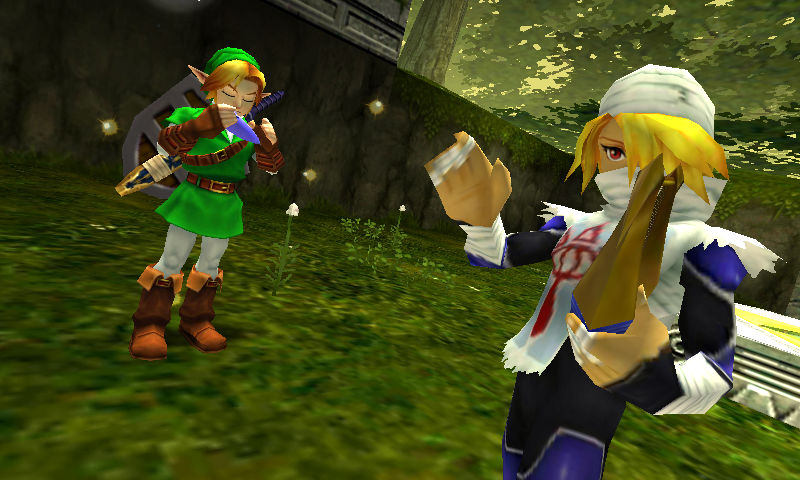
I love the feeling of "THE END" after a truly weary journey, and I don't get it quite often enough, so I will try to savor it by writing my impression of Ocarina before the feeling fades away. But I do believe there is an important lesson from my time in the world of Ocarina, and I believe this lesson might be worth sharing.
A Hard Adventure Writes Itself
One thing that really struck me about Ocarina was that there is little storytelling, at least in words. This is problematic for a person like me, who views a game as a medium to tell stories, and deplores some modern (mostly shooting) games that lack worlds of their own and simply supply ephemeral sensory stimulation. The storyline of Ocarina is a classic "There and Back Again". A boy named Link (though I named him Karl) starts out from a peaceful world (called Hyrule), but must save the day when an evil man (called Ganon) breaks it, and the boy triumphs in the end. Since there is neither voice acting nor lots of script (as in games like Dragon Age: Origins), only the most important parts of the story are briefly scribed in words, in conversations.Later I learned that the story actually manifests itself through the experience of playing the game. Your adventure in Hyrule will, before you know, itself be a story. In a more direct storytelling medium such as a novel, movie, or some other game, you will read about (or watch) the story of a hero who ventures to an ice cavern, solves tricky puzzles and traps, and slays a monster. There is no such story explicitly prepared for you in Ocarina. It is implicit when you do it, even though you might not realize when you're doing it.
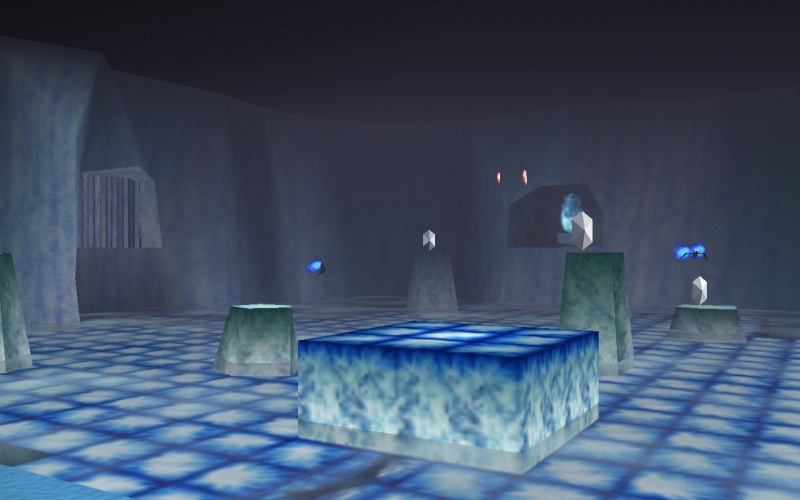
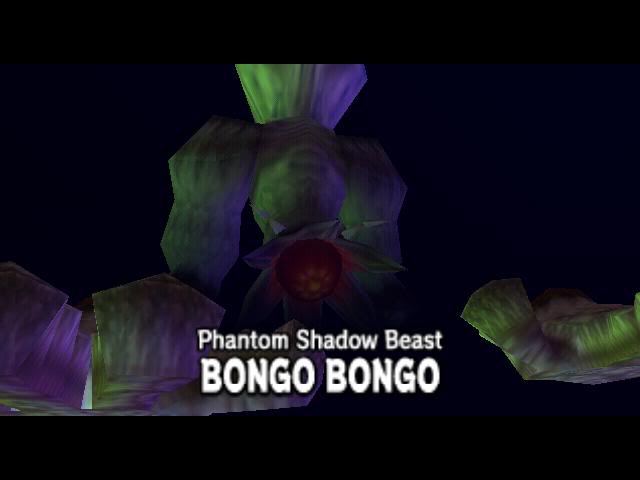
In the center of the earth I knocked a fire dragon out of its senses.

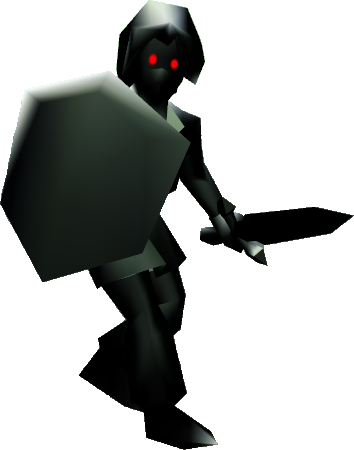
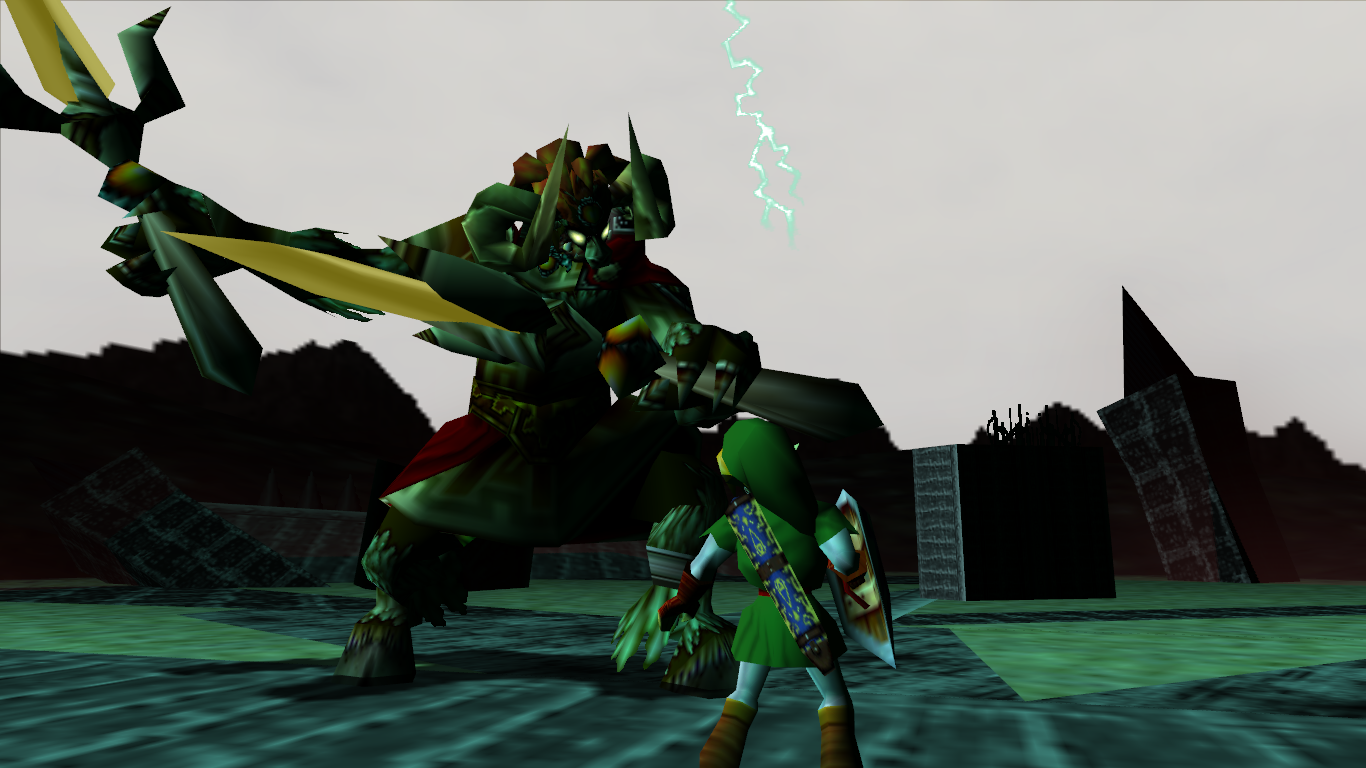
By the end of my adventure, I knew the land of Hyrule forward and backward, (forcefully) having ridden from one end to the other on my horse Epona several times. I felt an urge to just quit the game when the merciless restarts got on my nerves, but I kept on.
It wasn't just blood and sweat through and through, though. Light is all the more brilliant against darkness, and darkness is only profound in the presence of light. I'm sure that everyone who played Ocarina was moved in the Fountain of Great Fairies, where, after exhausting battles and mazes, a startlingly beautiful music envelops the luminicent wall of clear water drops. In the Fountain, as I walked deliberately and slowly to the center, breathing the peaceful atmosphere and looking around the waterfalls illuminated by torchlights, I felt a level of immersion that would be absolutely impossible had I not spilled blood and sweat on my part in this world.
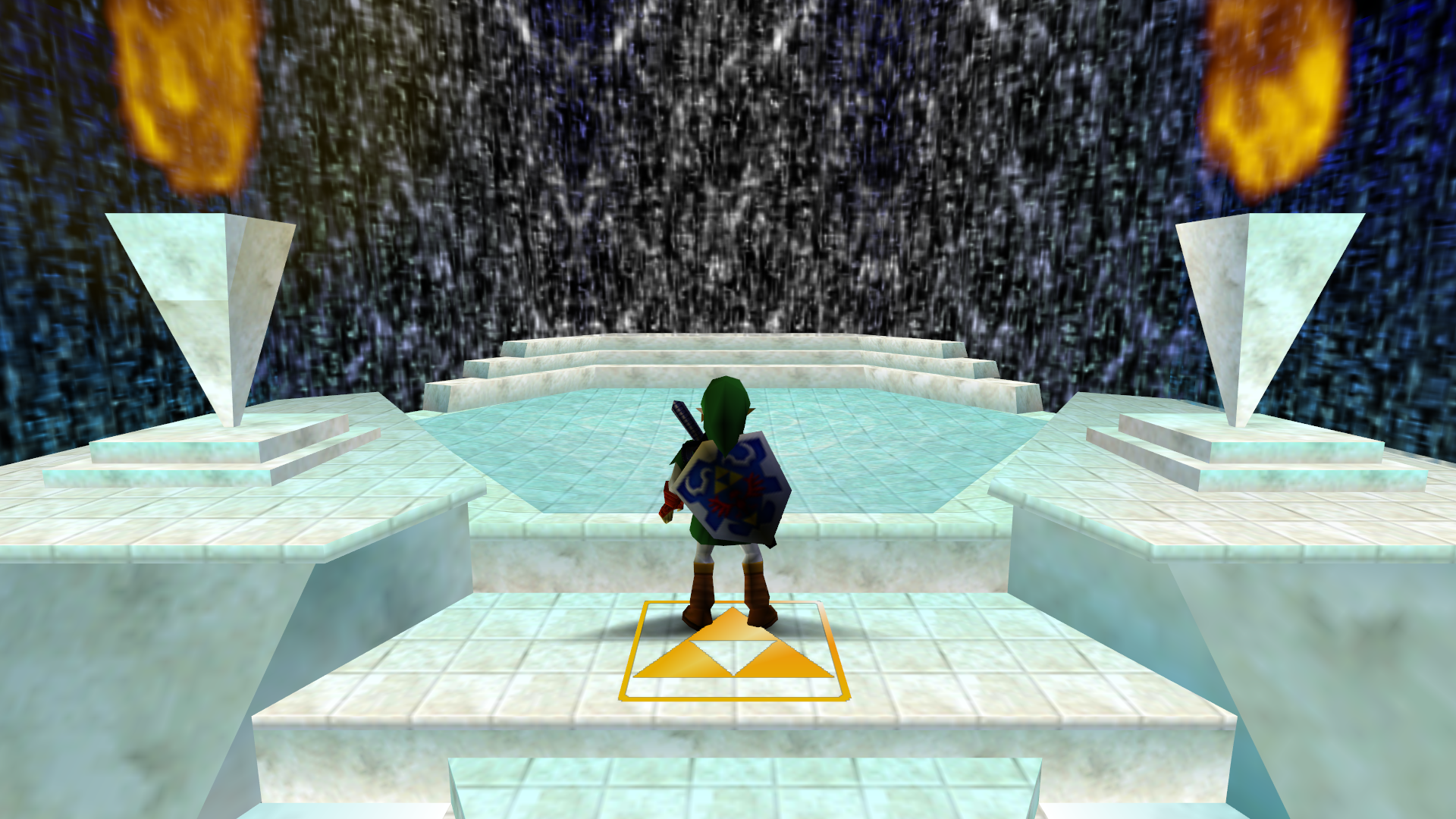
This is probably the heart of the lesson I learned. Things are very difficult to be meaningful without some pain. I love movies; I watch all kinds of movies, from the popular to esoteric. I love books; what better place to wield imagination? But this sense of membership and connection is simply infeasible in such media, where you're told what's going on. You have to live it. And it ain't come easy. It's not an easy and exciting ride like a movie, which keeps things rolling without efforts on your part. Even reading a book (which by many is considered a nontrivial intellectual exercise) doesn't provide pain and frustration necessary to build the momentum. Only a game can provide such sensation.
Am I saying all games should be bloody stressful? No, some of the worst games I've played just make things hard for the player for no good reason. And I don't think the experience alone can justify the quality of a game anyway (by that reasoning, a crappy MMORPG game is a good game if it happens to provide a good experience). A memorable game must have a believable and beautiful world, and the frustration of game play, though it hurts when it hits, if well-designed, can dramatically enhance storytelling in a way movies or books can never hope to.
As a person in the field of Natural Language Processing, it is astonishing that this non-linguistic storytelling convinced me to deeply care about yet another "There and Back Again" story of a boy, written by playing.


